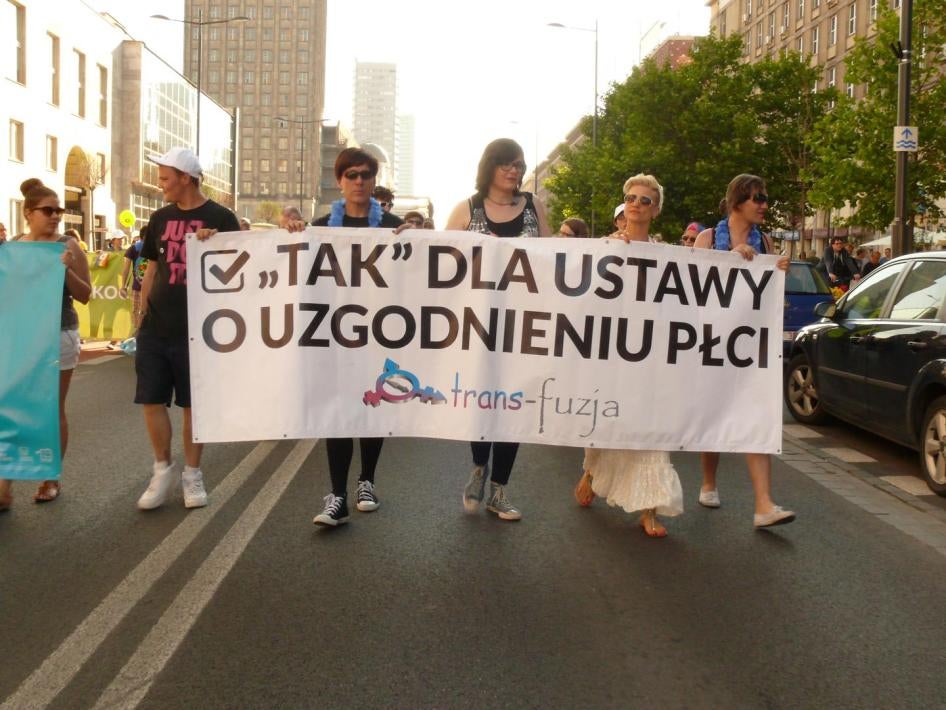This week Poland’s parliament has the chance to improve the lives of transgender people by passing a law that simplifies the legal gender recognition procedure.
Recognition before the law in your preferred gender is a vital aspect of ensuring respect for the human rights of transgender people. For example, it allows transgender people to access services on an equal footing with their peers.
First, it defines gender identity as a “settled and intense experience of one’s own gender,” which may or may not correspond with one's sex assigned at birth.
Second, it eliminates the requirement for physical interventions before gender can be legally recognized, and instead makes the process a court procedure.
Third, it spells out the various documents on which applicants are legally entitled to change their gender – including education certificates, work qualifications, and health records – and allows the possibility for young transgender people, once they reach age 16, to change their name.
Access to documents in your preferred gender and name is a key element in ensuring respect for an individual’s right to personal and private life, and also allows transgender people better access to healthcare, education, and employment.
In a recent survey, 78 percent of Polish transgender people said quicker and easier legal gender recognition procedures would allow them to live more comfortably.
There’s no doubt President Andrzej Duda’s recent veto of the act was a setback. But if parliament does vote in majority support of the legislation, Poland will take a huge step forward and transform the lives of many.









